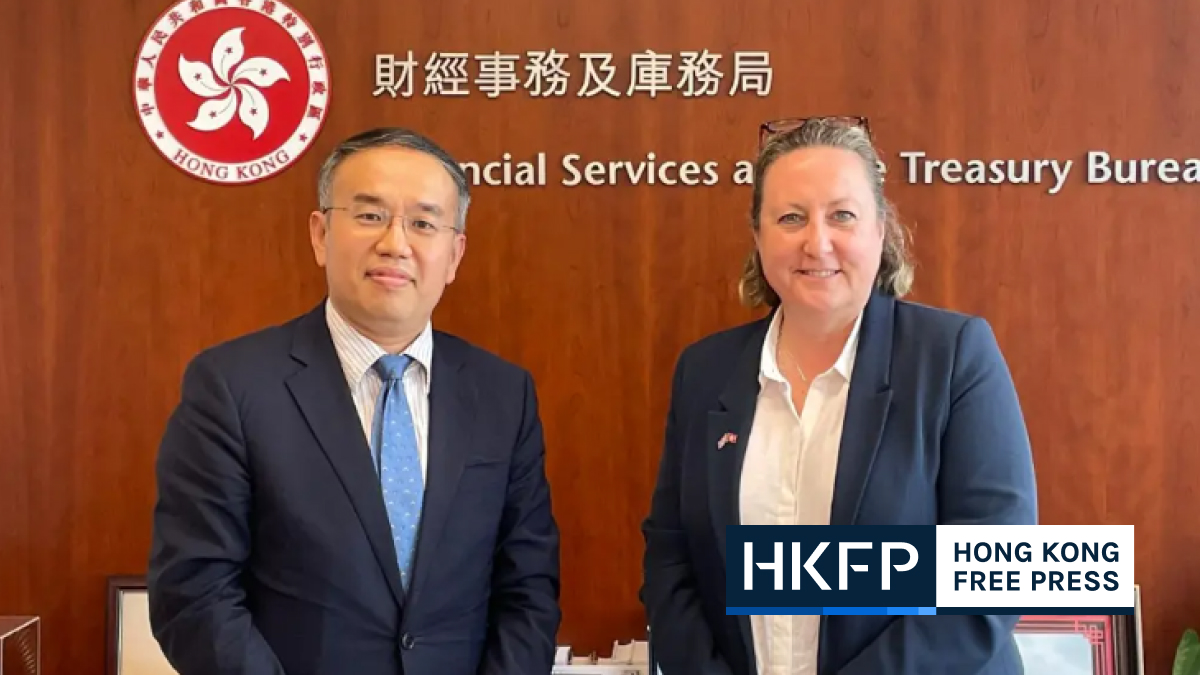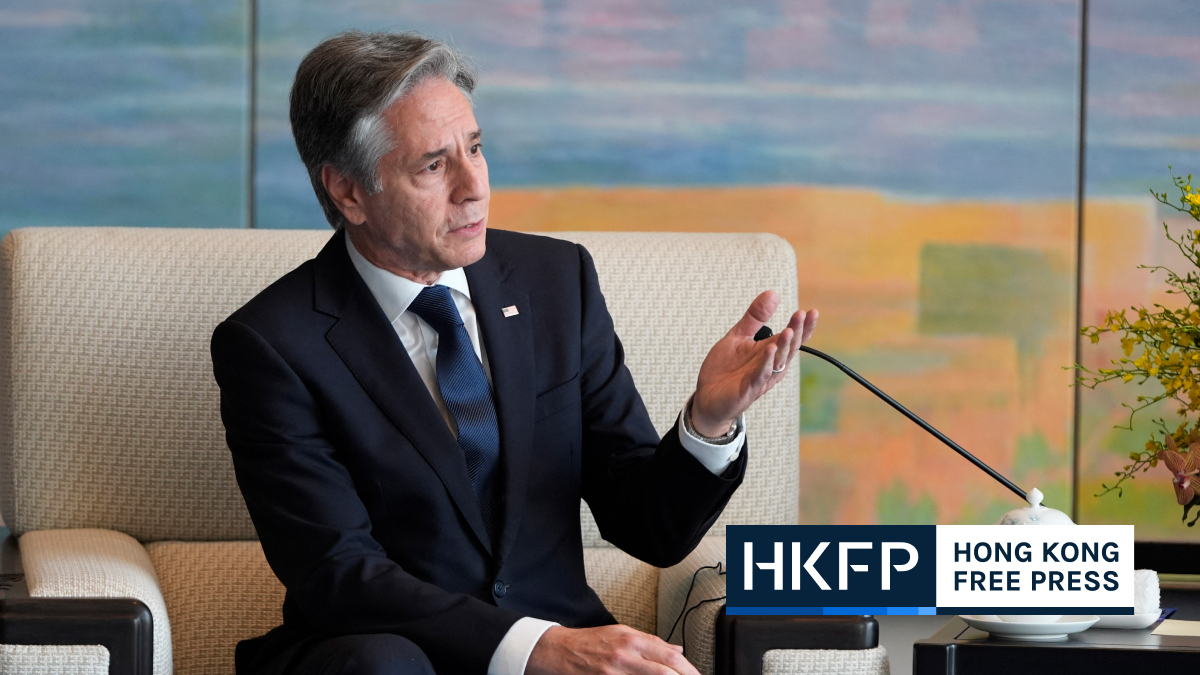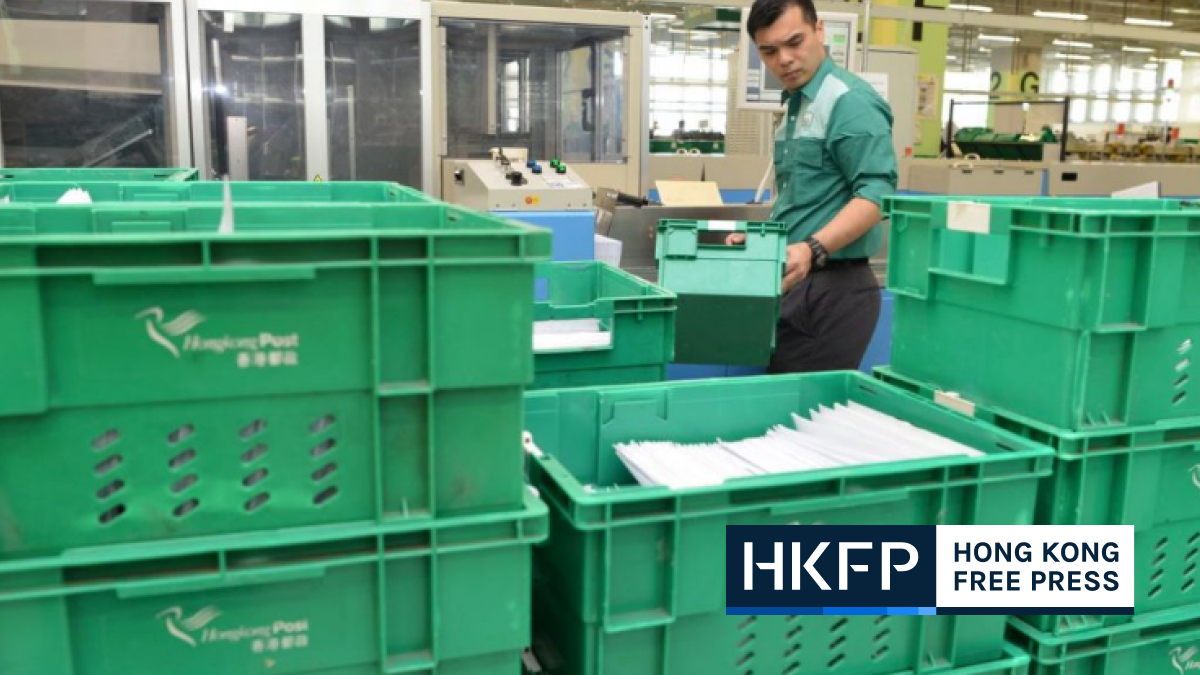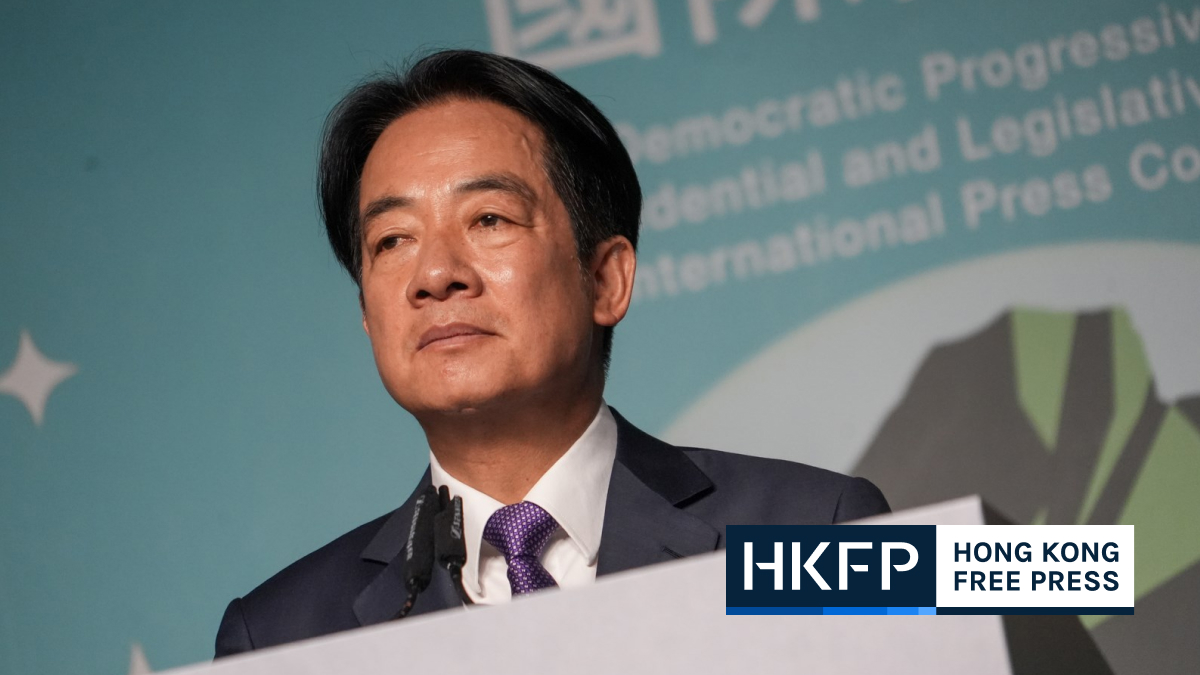More than 65 per cent of Hong Kong sanitation workers “always felt unwell” while working in hot and humid refuse collection points during the city’s sweltering summers, Oxfam’s local branch has found.
The NGO called on the government to require subcontractors to provide supplies for beating the heat, as well as introduce high-temperature subsidies for outdoor workers.
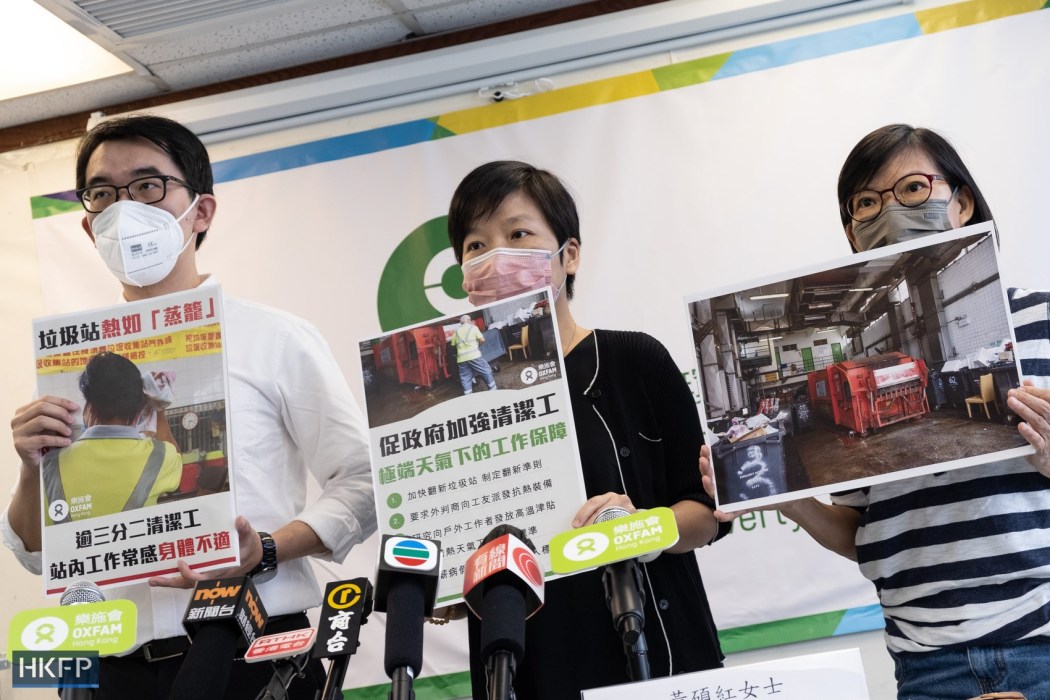
The average temperature inside refuse collection points stood as high as 32.2 degree Celsius, Oxfam Hong Kong said on Monday, when it released findings from a survey conducted between June and July on the working conditions of 200 cleaners hired by government subcontractors.
Among the sanitation workers interviewed, 66 per cent said they felt unwell due to the hot and humid environment and poor ventilation inside the waste collection stations. While 86.5 per cent of the cleaners told Oxfam that their employers provided gear such as hats, cool water or tea, towels and sleeves, many lacked fans and other equipment that could help keep them cool.
Close to half of the interviewees chose not to take breaks inside the refuse collection points, as some said it was “too oppressive,” while others cited poor hygiene.
“It is really hot inside. Even if there are five or six fans, it is still very stuffy and hot, and the stench is trapped inside,” a street cleaner using the pseudonym Fong told Oxfam.

The charity organisation showed photos of a refuse collection point in the New Territories, where cleaners had to set up a makeshift rest area using materials they found from discarded items as there was no separate room in the facility. Some cleaners, on the other hand, said their break room was too compact that they would rather sit outdoors under a tree during meal times.
“Not only are sanitation workers exposed to the scorching heat when working outdoors, they also lack a suitable space that allows them to rest and cool down,” said Wong Shek-hung, the Director of Hong Kong, Macau, Taiwan Programme at Oxfam Hong Kong.
Hong Kong marked its hottest month ever in July with 11 weather records broken. The Hong Kong Observatory hoisted the “very hot weather warning” on 21 days that month, topping the previous record set in 2020 by one day.
Asked if any of the cleaners the organisation interviewed had suffered from heatstroke, Wong said none of them reported the condition in this year’s survey. But the Oxfam Hong Kong programme director said some may not be aware if their body was overheating, as more than 40 per cent of the survey respondents said their employers had not arranged workshops or courses on the risks of working in extreme heat.
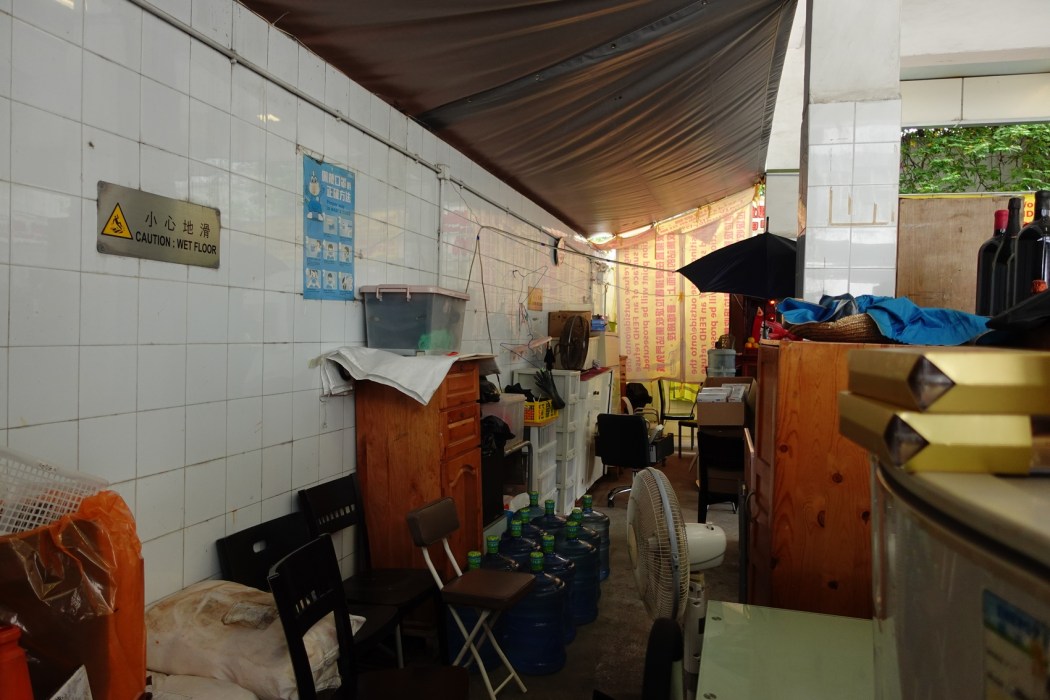
“We have to ask the government to strengthen relevant training for the workers, so that they have enough knowledge to prevent heatstroke,” she said.
Wong went on to say that the government should increase the frequency of inspection at refuse collection points in different areas of Hong Kong. The authorities’ existing practice of notifying a particular station prior to visiting may not reflect the actual and usual working condition of the cleaners, she said.
“The station may prepare before that, and everything would be alright. But is that the real situation? We cannot say that it is the real situation we experience on the front line,” Wong said.
Last month, Secretary for Labour and Welfare Chris Sun said the government would give reminders to employers if they were “not doing so well” in providing a work environment that protects workers from heatstroke. But the government’s aim was not “immediate prosecution,” he said.
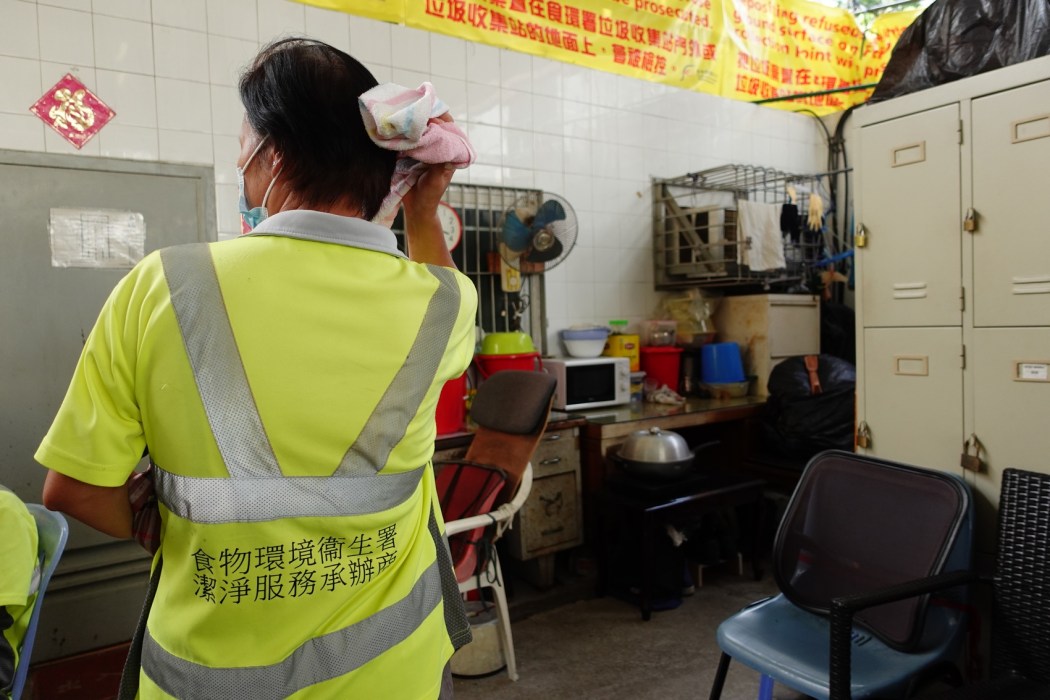
Oxfam called on the government to speed up the renovation of refuse collection points in the city, as their study found that only 17.6 per cent of the facilities were revamped. The new stations should have a separate rest area for cleaners, as well as a drinking water dispenser, a fridge and an anti-odour system, among other equipment.
The authorities should update its heatstroke prevention guidelines to require subcontractors to provide small fans, cooling spray, towels and other gear for cleaners, the NGO said. Those who work outdoors should also be granted “high-temperature subsidies” to cover the workers’ additional expenses on cooling equipment, it said.
Other recommendations from Oxfam included setting a threshold for outdoor work to be ceased when the temperature is too high, and adding paid sick leave and other occupational health and safety guidelines as a mandatory requirement in the government’s tender when seeking outsourced subcontractors.
Support HKFP | Policies & Ethics | Error/typo? | Contact Us | Newsletter | Transparency & Annual Report | Apps
Help safeguard press freedom & keep HKFP free for all readers by supporting our team

LATEST FROM HKFP
HKFP has an impartial stance, transparent funding, and balanced coverage guided by an Ethics Code and Corrections Policy.
Support press freedom & help us surpass 1,000 monthly Patrons: 100% independent, governed by an ethics code & not-for-profit.




